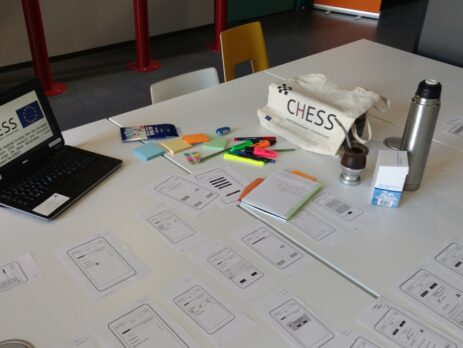This study outlines the design, prototyping, and usability evaluation of “More Stamina,” a gamified mHealth app aimed at helping individuals with Multiple Sclerosis (MS) manage fatigue. Developed through a user-centered design approach, the app incorporates behavioral change models and gamification techniques to encourage self-management. Usability testing revealed insights for refining app features, emphasizing simplicity, customization, and a positive user experience.
What was the context of the study?
Living with MS is tough, especially because of constant fatigue, which makes daily tasks harder. To help, researchers designed an app called “More Stamina.” It uses game-like features to help people manage their energy levels better. The app was built with input from MS patients and tested for ease of use.
What did we do?
We worked with people who have MS and healthcare professionals to design the app. Users could create a daily task list, assigning “Stamina Credits” to track how much energy tasks would take. We tested the app’s design through expert reviews to make sure it was simple and helpful.
What did we find?
The iterative design process highlighted the importance of meaningful metaphors, task customization, and a balance between simplicity and functionality. Usability issues, such as unclear navigation and inconsistent messaging, were addressed, leading to an intuitive interface tailored for MS patients.
Why is this important?
This app shows how technology can support people with chronic conditions like MS. It could make managing fatigue easier and improve quality of life for many patients. By incorporating user feedback and evidence-based design, “More Stamina” exemplifies how technology can empower chronic disease management and improve patient outcomes.
Reference
Giunti G, Mylonopoulou V, Rivera Romero O. More Stamina, a Gamified mHealth Solution for Persons with Multiple Sclerosis: Research Through Design. JMIR Mhealth Uhealth 2018;6(3):e51. https://mhealth.jmir.org/2018/3/e51

